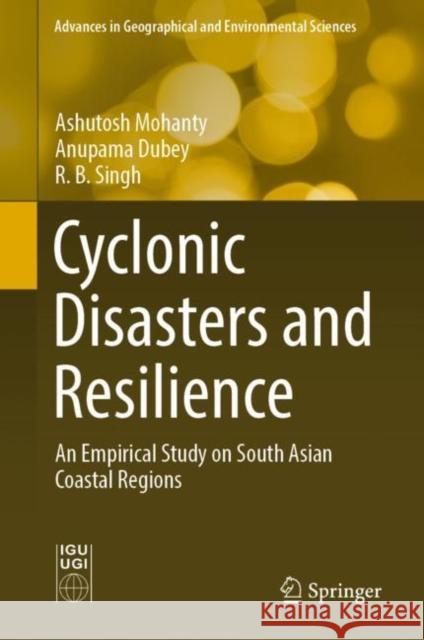Cyclonic Disasters and Resilience: An Empirical Study on South Asian Coastal Regions » książka
Cyclonic Disasters and Resilience: An Empirical Study on South Asian Coastal Regions
ISBN-13: 9789811912146 / Angielski / Twarda / 2022
Cyclonic Disasters and Resilience: An Empirical Study on South Asian Coastal Regions
ISBN-13: 9789811912146 / Angielski / Twarda / 2022
(netto: 461,12 VAT: 5%)
Najniższa cena z 30 dni: 462,63
ok. 16-18 dni roboczych.
Darmowa dostawa!
The Bay of Bengal is prone to tropical cyclones and storm surges as a result of its location, and many of the mostly poor people living along the coastal regions of South Asia lose their lives almost every year. These disasters have been particularly devastating and have caused serious damage. During the past five decades, the low-lying coastal and offshore islands have experienced a tragic history of 50 severe cyclones and storm surges, with more than one million victims dead or missing. People accepted and waited for the next disaster as they had no alternatives. Members of the poor families who survived the disasters experienced hard times recovering from damage and the loss of their loved ones. After disasters, epidemic diseases arise in the affected areas. Many of the people in distress are also deprived of public services. Providing all sorts of assistance and emergency health preparedness are most essential to overcome such a situation. The causes of these huge casualties have been mainly: (1) the high population density of costal settlements, (2) inadequate cyclone shelters in the disaster risk areas, (3) lack of awareness of the disaster risk by the vulnerable population, (4) deterministic attitudes of people who accept disasters as “fate”, (5) houses that are weakly constructed and (6) underdeveloped central awareness programmes and weather forecast systems. This book is based on an empirical study presenting a timeline analysis of major cyclones and their impacts and consequent losses through the super-cyclones in the disaster-prone coastal regions of India, Sri Lanka and Bangladesh. This study also investigates resilience mechanisms based on early warning systems, technology applications including GIS and remote sensing, best practices, success stories and case studies that can be used for effective cyclone management and development of a resilience mechanism among coastal communities.











